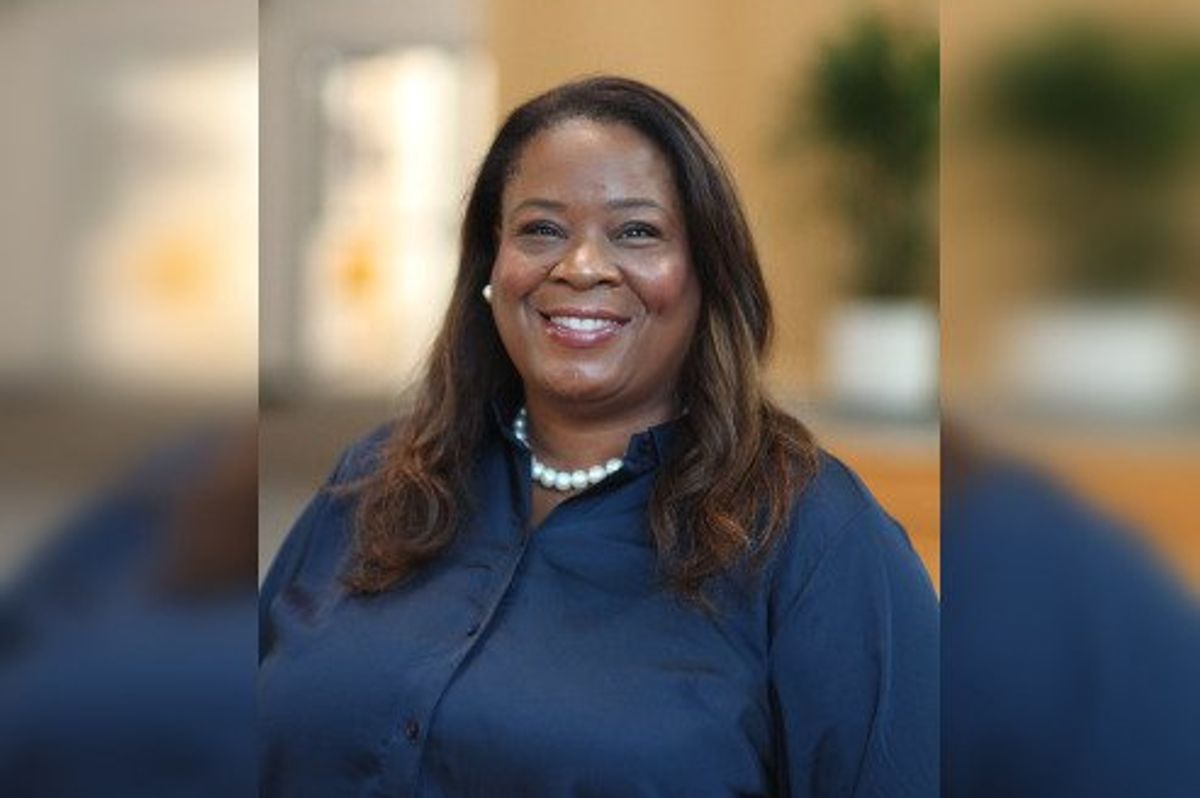Editor's note: In this week's roundup of Houston innovators to know, I'm introducing you to three local innovators across industries — from edtech to climatetech — recently making headlines in Houston innovation.
Timmeko Moore Love, general manager of Greentown Houston

Timmeko Moore Love has been named Greentown Houston's inaugural general manager. Photo courtesy of Greentown
Greentown Houston has named Timmeko Moore Love as Houston general manager and senior vice president of Greentown Labs. She'll lead Greentown Houston’s team and business operations, while growing the location's membership.
Love has 20 years of experience in innovation management, per the news release, and was the first Black woman at a Fortune 500 to lead a venture capital program. In that role, which was at The Woodlands-based Entergy Corp., she was named to the 2020 Global Corporate Venturing Powerlist. Love also oversaw corporate ventures at Mayo Clinic and Best Buy Capital.
“Greentown Labs is committed to ensuring founders’ success and is an agent of action in the fight against climate change,” says Love in the release. “I am excited to continue my service to the Greater Houston climate innovation ecosystem through this esteemed platform, and partner internally and externally to evolve and expand our services and programs.” Read more.
Anshumali Shrivastava, co-founder and CEO of ThirdAI

Anshumali Shrivastava also serves as an associate professor of computer science at Rice University. Photo via rice.edu
Anshumali Shrivastava's career has evolved alongside the rise of artificial intelligence. Now, he believes his company represents the future of the industry's widespread implementation.
Shrivastava, who's also a professor at Rice University, founded ThirdAI, pronounced "third eye," in 2021 to democratize artificial intelligence through software innovations. As Shrivastava explains on the Houston Innovators Podcast, AI processes have historically been run on larger, less accessible computing hardware. ThirdAI's tools are able to run on a regular central processing unit, or CPU, rather than the more powerful graphics processing unit, or GPU.
"We focus on the problems that people are facing in the current AI ecosystem," Shrivastava says on the podcast. "Right now, if you are to build some of the large-language models and (linear programming) models, you need a lot of computing power, dedicated engineers to move it, and, even if you are using fully managed services, it's costly and there are a lot of privacy implications because you have to move data around." Read more and stream the episode.
Ghazal Qureshi, CEO of UpBrainery

Ghazal Qureshi's Houston-based startup has advanced to the semifinal round of a prestigious national competition. Photo courtesy of Idea Lab Kids
UpBrainery, an immersive educational technology platform that customizes lessons for students, received $20,000 in seed funding from the U.S. National Science Foundation’s Visionary Interdisciplinary Teams Advancing Learning (VITAL) prize challenge. The $6 million prize challenge is cosponsored by the Bill & Melinda Gates Foundation, Schmidt Futures, and the Walton Family Foundation.
“This incredible achievement reflects our commitment to pushing the boundaries of knowledge and technology,” UpBrainery states in a LinkedIn announcement.
In addition to the seed money, UpBrainery will be partnered with a mentor to help them improve the logistics of their exploratory learning and AI aided platform, with a focus on developing their minimum viable prototype. Read more.

 ThirdAI's PocketLLM app is free to use. Image courtesy of ThirdAI
ThirdAI's PocketLLM app is free to use. Image courtesy of ThirdAI


 Anshumali Shrivastava is an associate professor of computer science at Rice University. Photo via rice.edu
Anshumali Shrivastava is an associate professor of computer science at Rice University. Photo via rice.edu Apple doubles down on Houston with new production facility, training center Photo courtesy Apple.
Apple doubles down on Houston with new production facility, training center Photo courtesy Apple.